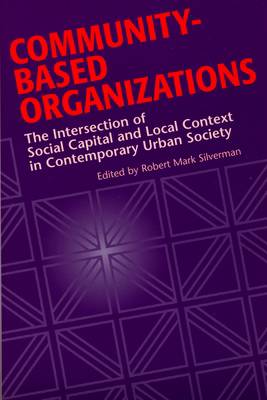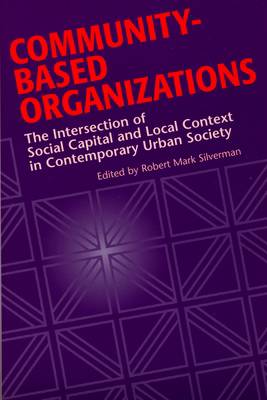
- Retrait gratuit dans votre magasin Club
- 7.000.000 titres dans notre catalogue
- Payer en toute sécurité
- Toujours un magasin près de chez vous
- Retrait gratuit dans votre magasin Club
- 7.000.0000 titres dans notre catalogue
- Payer en toute sécurité
- Toujours un magasin près de chez vous
Community-Based Organizations
The Intersection of Social Capital and Local Context in Contemporary Urban Society
SilvermanDescription
In response to the ongoing debate over the role social capital plays in the creation and continuation of a healthy civic culture, Community-Based Organizations in Contemporary Urban Society studies the close relationship that social capital shares with local context, social organization, and institutional structure. The book's timely analysis illuminates the institutional barriers currently affecting the mobilization of social capital and establishes a foundation for social and political reform in the future. All components of capital formation--including human, financial, and cultural capital--are identified and considered as they relate to the community development process, as well as how social capital relates to race, class, gender, and religion in urban society.
Community-Based Organizations in Contemporary Urban Society offers vital extensions to existing literature on social capital and allows the reader to consider this topic from multiple perspectives through its broad spectrum of interdisciplinary essays by sociologists, political scientists, and urban planners. The essays discuss important steps in the mobilization of social capital, as well as its role in microfinance programs, community development corporations, homeowners associations, religious institutions, and neighborhood associations. Individual chapters present an array of theoretical arguments, empirical analysis, and applied case studies that are of interest to academics, practitioners, and activists in the community development field.
Spécifications
Parties prenantes
- Auteur(s) :
- Editeur:
Contenu
- Nombre de pages :
- 232
- Langue:
- Anglais
Caractéristiques
- EAN:
- 9780814331576
- Date de parution :
- 18-02-04
- Format:
- Livre broché
- Format numérique:
- Trade paperback (VS)
- Dimensions :
- 153 mm x 228 mm
- Poids :
- 317 g

Les avis
Nous publions uniquement les avis qui respectent les conditions requises. Consultez nos conditions pour les avis.






